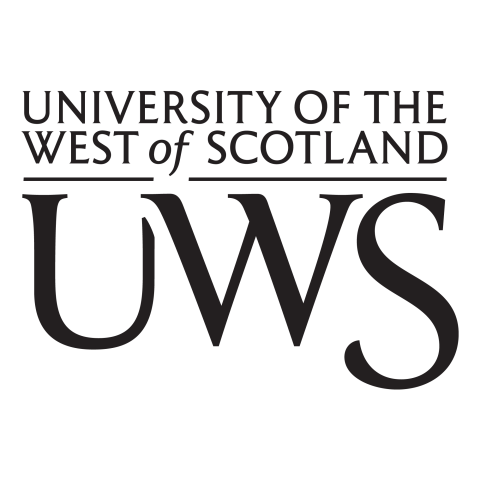
British sign language users deserve a place in higher education
BSL users are under-represented in academia. What can we do to foster an inclusive environment for them?
You may also like
Popular resources
When I began my role as a university equality, diversity and inclusion consultant, I had only a surface-level understanding of British Sign Language (BSL) and the experiences of BSL users. I knew about some of the barriers faced by BSL users but it wasn’t until immersing myself in the work that I truly appreciated the depth of BSL as a language – complete with its own grammar, syntax and vocabulary – and the richness of Deaf culture and history. These insights made me realise the importance of ensuring that higher education institutions go beyond compliance, and actively foster inclusive environments that support BSL users in meaningful ways.
By making education accessible to BSL users, we can widen participation and accessibility even further. However, doing so requires dedicated attention and resources. Here, I’ll outline what the sector can do.
Establish a group
The British Sign Language (Scotland) Act 2015 promotes the use of BSL in Scotland and requires many authorities (including universities) to develop a BSL action plan. As I set out to review and renew the six-year UWS BSL action plan, I established a Scottish higher and further education sector-wide BSL group. I hoped to understand the sectoral context around BSL action plans better, and to share learnings from past BSL action plans. This group became a valuable platform for discussing best practice, sharing research, addressing shared challenges and exchanging knowledge. What became evident was that the Scottish sector faces several recurring challenges, which require a collaborative and coordinated approach to resolve.
- Creating inclusive spaces for inclusive events
- How to create an inclusive learning environment for visually impaired students
- What can universities do to attract and support students with disabilities?
Consultation fatigue was highlighted as a primary concern for a lot of institutions when they were drafting, and consulting on, their updated plans. The same BSL users and Deaf individuals are often consulted on accessibility issues across various sectors, and tend to be asked very similar (if not the same) questions time and time again. This can make them feel exhausted and frustrated, especially when their input has often not resulted in meaningful change. As a sector, it’s important we approach consultations thoughtfully, and where possible, collaboratively, so they don’t lead to consultation fatigue, and that consultations are purposeful and lead to tangible outcomes.
The importance of visibility
One of the key challenges we identified is the under-representation of BSL users in academia. Although there is no consensus on the number of BSL users in the UK, estimates suggest that about 25,000 people use BSL as their primary language. Despite this, the number of BSL users entering higher education remains disproportionately low, and they also continue to be significantly under-represented in the workforce.
To address this critical gap, universities need to actively engage with BSL users. The goal should not be for BSL users to attend any one institution but to raise awareness about available programmes and the support structures in place.
Accessibility issues
Another shared problem is the difficulty of booking interpreters in Scotland. Many universities struggle to source interpreters with the necessary skills. While booking an interpreter may appear straightforward, there are several underlying challenges. Most are concentrated in the central belt of Scotland, making it especially difficult for institutions outside this region to secure interpreters locally. There’s also a shortage, with only 129 qualified BSL/English interpreters registered in Scotland.
Academic interpreting requires additional considerations because interpreters need to become familiar with specialised vocabulary relating to different subject areas – crucial to ensure effective communication between educators and BSL users across disciplines.
While challenges contributing to the lack of access to interpreters are complex, two major factors seem to contribute to the scarcity of interpreters: the overall number of qualified interpreters and the way they are used across the sector.
We have an opportunity to be part of the solution to this problem, particularly by working to increase the number of interpreters available. Some higher education institutions already have specialised interpreter training programmes. Heriot-Watt University runs a British Sign Language and Applied Language Studies programme and Queen Margaret University runs an Advancing Practice in Signed/Spoken Language Interpreting programme.
Other higher education institutions provide introductory BSL courses and modules to equip participants with a basic level of BSL. Universities can offer dedicated BSL interpreter training programmes, including diplomas, undergraduate and postgraduate courses.
Join together
Collaboration between higher education and Deaf community organisations could increase the number of interpreters equipped to work in tertiary educational settings. By offering placements and mentorship programmes, interpreting students can gain hands-on experience working alongside professionals in real-world environments. This practical exposure is essential for developing the specialised vocabulary and knowledge required to succeed in different academic contexts, ensuring that future interpreters are well prepared to meet the demands of higher education.
No single institution can tackle these complex issues in isolation. By working together, as well as with the Deaf community, institutions can share best practice and develop unified strategies that benefit BSL users.
Astrid Smallenbroek is equality, diversity and inclusion consultant at the University of the West of Scotland.
If you would like advice and insight from academics and university staff delivered direct to your inbox each week, sign up for the Campus newsletter.




